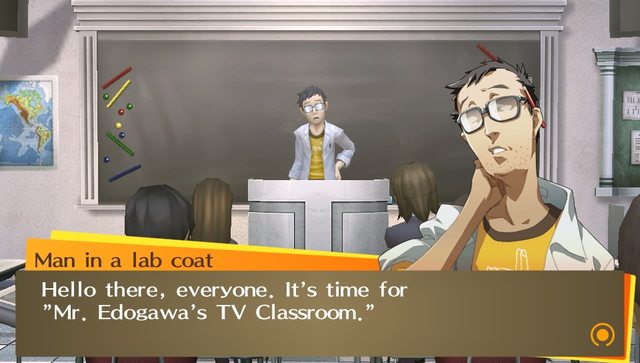Well, here's the thing for me.
I can respect symbolism and all that, but as someone raised on classic literature, I prefer for it to actually say something.
What truth do we, the audience, actually learn at the end of Persona 4?
That searching for the truth is good? If you asked the average player if that was a good thing before starting the game, they probably would have said yes.
That the magical murder mystery was initiated by a magical demon trying to destroy the world? I think the "space whales" plot in Star Trek had more applicability then that.
That "most people don't care about the truth?...maybe. But to be honest, that was barely even shown in game. 99% of the cast embraces the truth about themselves (despite mostly being teenagers!) thanks to hanging out with one plucky grey haired dude for a few afternoons. Izanami's complaints about mankind aren't really evidenced in game, and even if they were, her "solution" makes even less sense. "Humans can't handle the responsibility of free will, so let's make the world EVEN MORE DESTRUCTIVE AND CHAOTIC". At least the Angels kinda had a point in their post apocalyptic settings.
At the end of the day, we the audience don't get anything out of "the truth" except a hallmark card message about friendship and truth. Without actually exploring any kind of truth that's relevant to the audience other than a few moderately well written character interactions.
At the end of the day, I think the game has some interesting ideas about social interaction, a nice mystery based plot that falls a bit short, and alright characters for the most part. But I think it falls short of being a truly classic adventure story or being a truly thought provoking story.
That's a pretty elementary way to look at the story, and while I hate to assume, I think it's fair that if you didn't really get a message out of this, you probably didn't get a message out of NGE, or Lain or Bokurano.
That's cool and all, but I feel it's simplistic.
The moral of the story wasn't really friendship, it was of acceptance.
Most of the characters' story arcs are pretty interesting in ways that I can talk about tomorrow if you want, it's getting a little late on this side of the planet.
But to keep it short.
Izanami saw chaos, and proposed a solution, no autonomy, no pain, you just exist, since humanity couldn't settle on one truth, she gave you one.
The P4 cast told Izananami to shut up and ACCEPT that many different people ACCEPT many different things.
The ACCEPTANCE of other people's values and willingness to live together is what's magical.
In P4 you're told to ACCEPT a lot of things, but never told to deny any of them, in fact, denial is what starts the story in the first place.
Adachi's inability to ACCEPT that he's fucked up.
Dojima's inability to ACCEPT that his wife's killer is gone.
Youskue's inability to ACCEPT his new environment.
Chie's inability to ACCEPT that she's not who she wants to be, yet.
Yukkiko's inability to ACCEPT that her parent's views and her views are one in the same, never getting an actual chance to rebel.
Kanji's inability to ACCEPT that he's a little different.
Naoto's inability to ACCEPT that some things are outside of her control.
Rise's inability to ACCEPT that there is more to her than even she knows, that she's a complex person.
Izanami's inability to ACCEPT that there are different view points other than her own.
Everytime someone denies something in the game, bad shit happens.
The "moral" of the story is ACCEPTANCE. (there's more than that, but I'm tired)
If this was a book and you couldn't find a theme or something to this, I'd ask you to reread the book.
The truth is the red hairring, the bait and switch. (ironic, right. It's like these fuckers could write or something.)
Acceptance is what this story is about, and they drill it into your head every step of the way.
Even the games music and titles want to decieve you.(Reach out to the TRUTH, face my TRUE self).
What the audience learns is ACCEPTANCE, to accept others viewpoints, while holding adapting yours and becoming a stronger person.
Bed time.



